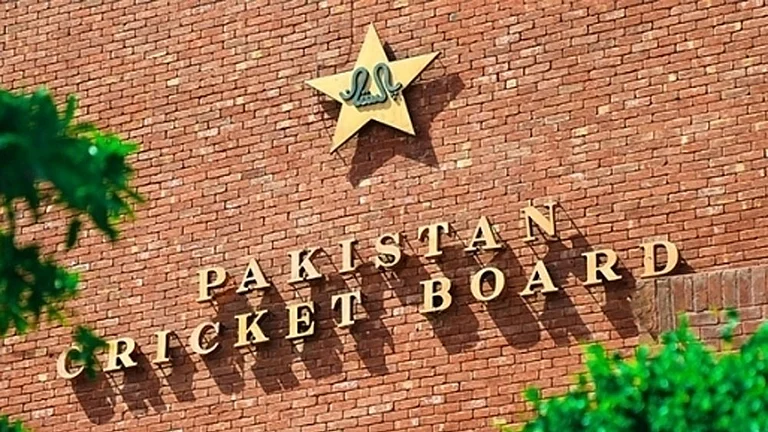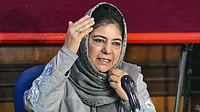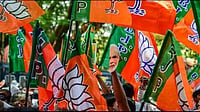A bid to include the Bhoti language in the 8th Schedule by BJP MP Ladakh Jamyang Tsering Namgyal has led to a row in Ladakh. On April 1, Namgyal introduced a Private Member Bill in Lok Sabha to include language in the 8th Schedule of the Indian constitution. While the BJP MP argues that Bhoti is spoken throughout the region, scholars claim Namgyal is wrongly attributing Bhoti to Ladakhi and other languages spoken in the region. Ladakhi language is a Tabetic language spoken in Leh. It is seen as a distinct language from the Purgi and Balti spoken in the adjacent Kargil district. Critics claim the decision to club it all under 'Bhoti' is likely to create fissures in the region and reignite historic divides.
Leh and Kargil
The history of the divide between Kargil and Leh began in 1979, when the single district of Ladakh was divided into two, almost foreshadowing the two hill councils and more than 40 years of the deep divide which began to be repaired last year. For the past two years the Leh Apex Body, a grouping of different religious and political organisations of Leh, and the Kargil Democratic Alliance, an umbrella of political and religious groups of Kargil, are seeking full-fledged statehood for Ladakh, constitutional safeguards on the lines of the 6th schedule to safeguard the demography, environment and unique culture of Ladakh. They are also seeking two Lok Sabha seats for the region, a Rajya Sabha seat and filling up 10,000 to 12,000 vacancies to overcome unemployment in the region. Last year, both the groups came together and held talks, a rare instance of amity in the history of the Ladakh region.
Now on the issue of Bhoti language, differences are likely to surface between the two regions that have shown a united face so far. Sajjad Kargil, a political leader from Kargil, says that those with vested interests are out to break the alliance between the Kargil Democratic Alliance and the Leh Apex Body and that they are playing the language card to do so. Kargilis claim that in the name of including Bhoti, the linguistic identity of a large number of people is being taken away and it will not be accepted.
Namgyal said it is for the first time in the Indian Parliamentary history that a member of the parliament has moved a private member Bill in Lok Sabha to recognize the Bhoti language in the 8th Schedule of the Constitution.
In his statement of the objective of the Bill, Tsering Namgyal said Bhoti language reflects the history and culture of the Himalayas. He says Bhoti literature and script can be traced back to Thomi Sambhota who made the script in the 7th century by modifying the four vowels and thirty consonants of the Devnagri script. Its grammar, he said, was derived from Sanskrit. He added that a collection of the rich treasure of the Nalanda tradition and Gautam Buddha’s teaching Tripitika comprising 108 volumes are also available in Bhoti in the original form.
The BJP MP said that the Bhoti language has its own script which has been used across the regions of the Himalayas from Ladakh to Arunachal Pradesh, Himachal Pradesh to Uttarakhand, West Bengal to Sikkim. He says the language is recognized with different names as the official language in the Himalayan states. “The glory and grace of this language is not only confining to the Himalayan region of India but also in Bhutan, Nepal, Tibet, China, Mongolia and Pakistan. This language is a symbol of the “unity in diversity” among people of different religions, regions, cultures and countries that are using this language.”
“In contemporary times, different schools, colleges and universities throughout the world are imparting education in and about Bhoti language. In radio telecasting, All India Radio Leh, Shimla, Gangtok, Karshang Darjeeling, Tawang and Delhi broadcast their news and other programmes in Bhoti language,” he said. “More than fifteen newspapers and magazines are available in the language and nearly 7,000 Monasteries of the Himalayan region follow this language in their practices and operations,” he added.
However, the leading literary organisation of the region, Bazme-Adab, Kargil, said the assertion by the MP that Bhoti is the language of the whole Ladakh is not based on facts.
Bazm-e-Adab expressed deep concern over the use of the term “Bhoti” for the Ladakhi local language in a letter to the Lieutenant Governor, Ladakh Radha Krishna Mathur. “Bhoti is neither a script nor a language of Ladakh,” the letter read.
“The term ‘ Bhotï’ has been coined by some people in Leh with some ulterior political motives. The statement that ‘Bhoti’ is the language of whole Ladakh and some other Himalayan states like Sikkim, HP, AP, UK, has no logical or linguistic grounds," the letter stated.
“The only common thing between Ladakhi Buddhists and the Buddhists residing in other states of India may be their religious beliefs in the name of Himalayan or Tibetan Buddhism” the letter added.
“So, they share a common scripture originally derived from old or classical Tibetan culture for their religious practices. It does not mean that they share a common language just on the basis of a common script. A script necessarily may not be a pre-requisite for a common language.”
“Likewise, all the Muslims have a common Holy book Quran basically written in Arabic script. But it is not necessarily mean that Arabic should be the native language of all Muslims across the world.”
Bazm-e-Adab argues that there are four languages and dialects spoken in the whole of Ladakh known as Ladakhi, Purgi, Balti and Shina or Dardi. As per the census 2011, Ladakhi which is now termed Bhoti is spoken by 36 per cent of the population and Purgi by 34 per cent, approximately. Three of these languages namely Ladakhi, Purgi and Balti belong to the sane Sino- Tibetan language family while Shina/Dardi belongs to Indo- European language family.
“Presently, Ladakhi is written in Tibetan script which is derived from old Nagri of Gupta period somewhere in 630 AD. Purgi and Balti are written in ‘Nastaliq’ script which originated from Persio-Arabic scripture. Shina is also written in the same script.
“So, the wrongly interpreted ‘Bhoti’ language may not be justified as an alternative to Ladakhi language merely on the basis of a script by marginalizing its sister languages (Purgi and Balti) spoken and written by the majority of Ladakhi population.
“It is therefore requested to your kind authority for due consideration of this important issue while deciding and declaring a particular official language with a script for UT Ladakh”, it says.
Last month, a rally was organized at Leh with protesters seeking recognition of the Bhoti language as a medium of instruction in keeping with the National Education Policy.
The rally was led by LBA President Thupstan Chhewang, former MP and current president of the Leh Apex Body. The protesters insist Bhoti should be made the official language of the region and introduced as a medium of instruction from nursery to the eighth standard with separate departments of higher learning in existing and proposed universities of Ladakh.


























